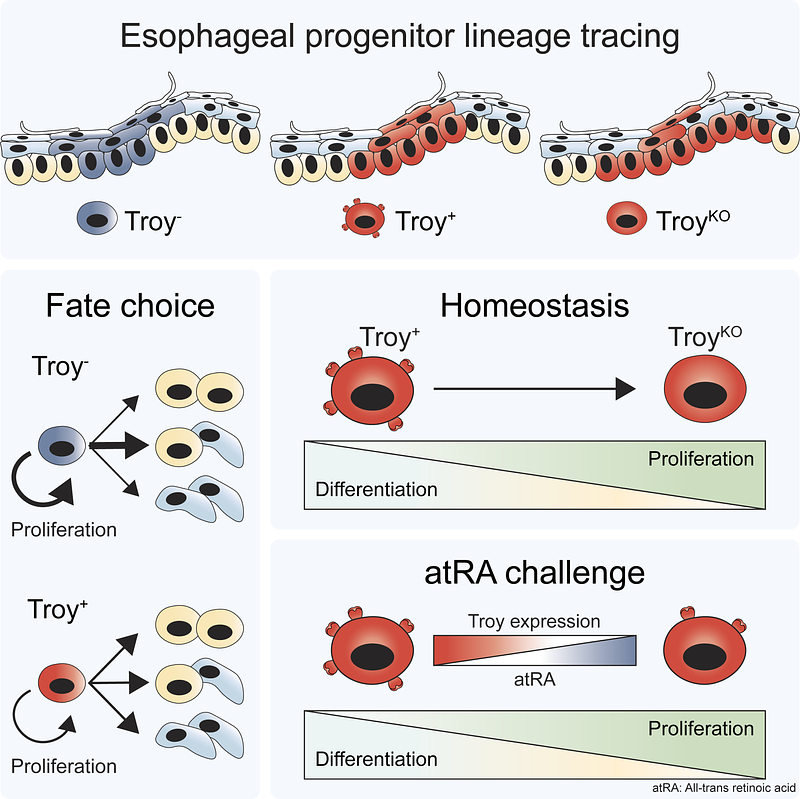Defining the contribution of Troy-positive progenitor cells to the mouse esophageal epithelium.

Symmetrically fated progenitors dynamically accommodate tissue maintenance in the esophagus.
Grommisch, D.; Wang, M.; Eenjes, E.; Svetlicic, M.; Deng, Q.; Giselsson, P.; Genander, M.
AbstractProgenitor cells adapt their behavior in response to tissue demands. However, the molecular mechanisms controlling esophageal progenitor decisions remain largely unknown. Here we demonstrate the presence of a Troy (Tnfrsf19)-expressing progenitor subpopulation localized to defined regions along the esophageal axis. Lineage tracing and mathematical modelling demonstrate that Troy-positive progenitor cells are prone to undergoing symmetrical fate choices and contribute to esophageal tissue homeostasis long-term. Functionally, TROY inhibits progenitor proliferation and enables commitment to differentiation without affecting fate symmetry. Whereas Troy expression is stable during esophageal homeostasis, progenitor cells downregulate Troy in response to tissue stress, enabling proliferative expansion of basal cells refractory to differentiation and reestablishment of tissue homeostasis. Our results demonstrate functional, spatially restricted, progenitor heterogeneity in the esophageal epithelium and unveil how dynamic regulation of Troy coordinates tissue generation.